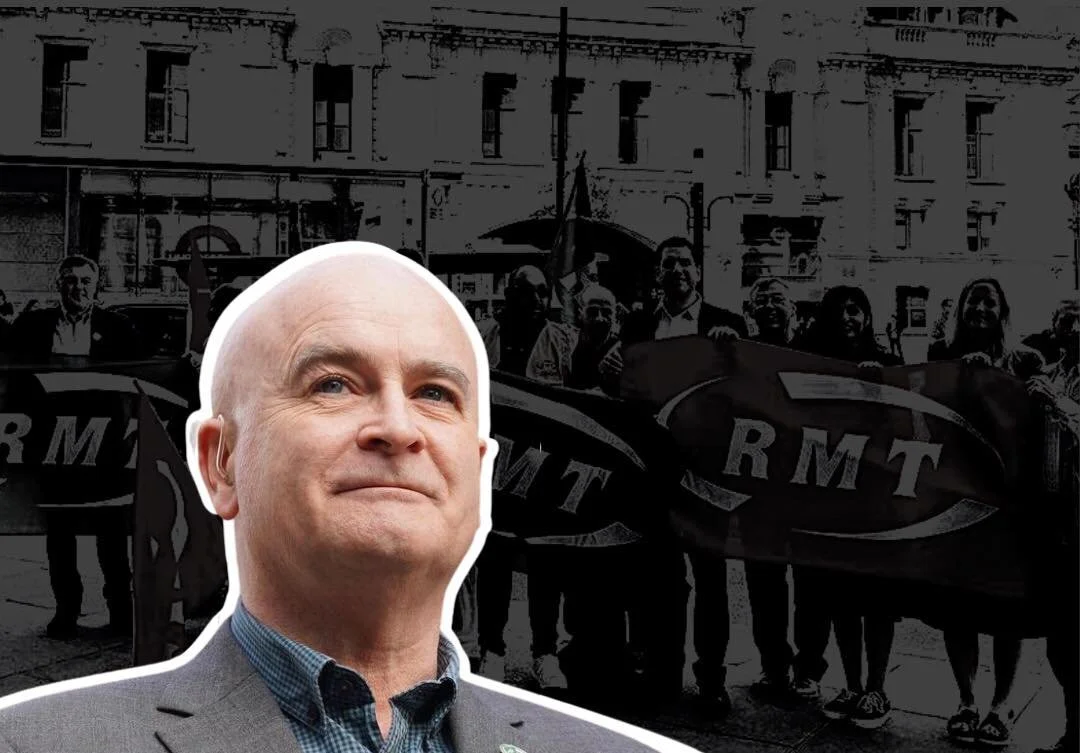Irish Trade Unions Must Fight Like Never Before To Protect Worker's Incomes
Mick Lynch of the RMT Trade Union in Britain has become somewhat of a celebrity over the summer due to his high profile battles with journalists from the state and corporate media who have been interviewing him in relation to the ongoing rail strikes in that country.
Lynch’s clear socialist politics, and his identifying James Connolly as his hero, have struck a chord with many in Britain and Ireland, leading to an unexpected resurgence of interest in the ideas about class and fairness that he has articulated.
At the same time trade unions in Ireland have been pushing for wage increases to combat soaring inflation and decrease inequality. In the public sector in the Twenty-Six Counties, unions are preparing to ballot their members in September for a campaign of industrial action in pursuits of an improved pay offer from the government.
Piers Morgan was one of several high profile British interviewers whose attempt to ambush Mick Lynch failed spectacularly
The move toward industrial action follows the union’s withdrawal from pay talks in June because of the Dublin government’s intransigence. This threat of industrial leverage is the only thing that has brought the government back to the table, with talks due to recommence at the end of August.
In the community sector, the campaign for pay parity with the public sector continues with a protest in Galway on 29th August. There have been long-standing issues with pay and pensions in this underfunded sector and crucial community services are at risk due to an inability to recruit and retain staff who can get better terms and conditions elsewhere in the health service.
In the private sector, the Financial Services Union has agreed a cost-of-living top up of 4% of salary for lower paid workers in Ulster Bank, on top of a previously agreed pay deal. In transport, Dublin Bus union members secured a 15.5% pay deal, while unions in Irish Rail are currently balloting on a combined 15% salary increase and once off payments pay offer.
Sometimes, of course, negotiations will fail and at that point both unions and workers must be willing and able to use their industrial muscle. A current example of such industrial action being a recent 24-hour strike by SIPTU members in Kyle Powertech in Cavan in response to an inadequate proposal from management to deal with the reduction in standard of living for their employees.
When negotiations fail, workers and unions must be willing and able to take industrial action, like these Kyle Powertech workers in Cavan
Trade unions remain a potentially powerful weapon to advance the cause of workers and of socialist republicanism - the causes that Mick Lynch has eloquently championed during countless media interviews over the summer.
As winter approaches, millions of Irish citizens are going to feel the full impact of the current surge in the cost of living generally and the cost of energy in particular. Now, more then ever, Ireland needs a fighting trade union movement to secure wage increases that are in line with the inflation.
The increased support which Mick Lynch now enjoys has caused some to question whether he might enter the political and electoral arena in Britain. This is entirely understandable given the current leadership of the British Labour party and the profound lack of a credible, national alternative to that party.
In Ireland too, there is a fundamental vacuum at the heart of the political system, where neither government nor the main opposition parties have the slightest interest in delivering meaningful change.
In contrast, Éirígí wants to see maximum change, to see Leinster House and Stormont replaced with a New Republic where the interests of workers are placed ahead of exploitative bosses, profiteering energy companies and ruthless vulture landlords.
You can read more about the New Republic in the Democratic Programme for a New Republic - a manifesto (including mandatory trade union recognition) for the New Republic that we want to build.
If you like what you read, take the next step and join Éirígí and the fight for a New Republic.



